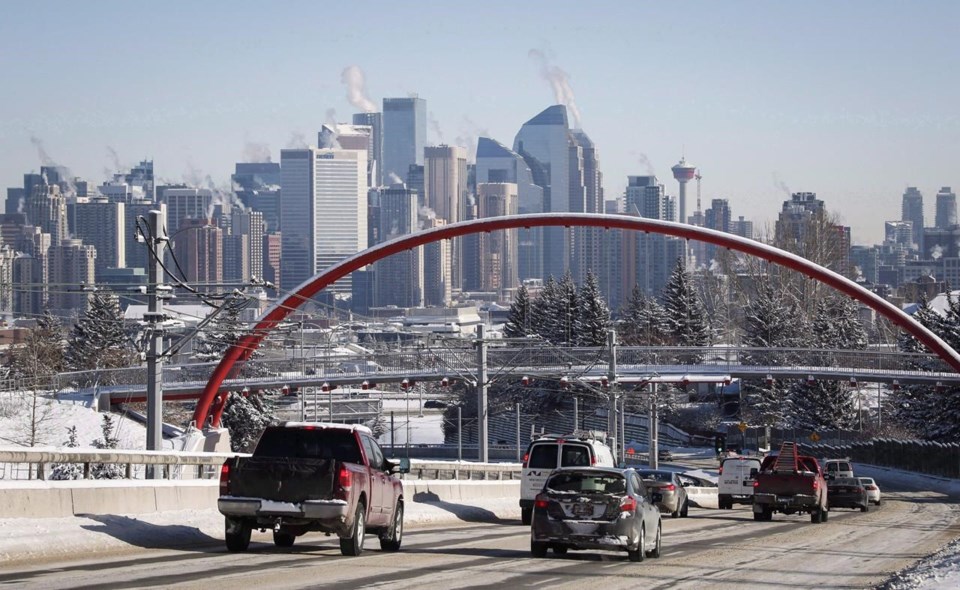EDMONTON — A government panel is recommending a fundamental overhaul of automobile insurance in Alberta to move away from costly, protracted court fights to a collaborative no-fault model.
Chris Daniel, who heads the panel, says the change is critical if auto insurance is to remain sustainable while providing fair and timely care and compensation to those hurt in collisions.
Daniel says it wouldn’t be easy and couldn’t be done overnight.
“A fundamentally reformed automobile insurance system requires significant cultural shift in the attitude and expectation from current practices, participants, and providers,” Daniel told a news conference Thursday.
Finance Minister Travis Toews said the government wants to hear more from Albertans, health professionals and the insurance industry before committing to change.
“The committee make a compelling recommendation,” said Toews. “(It) would result in transformational change in terms of our automobile insurance system in the province, and we really believe we want to hear from Albertans.”
Toews said a panel will be struck to get feedback on the no-fault proposal by the middle of next year.
Premier Jason Kenney’s United Conservative government has been struggling to rein in premium costs for drivers under Alberta’s privatized insurance approach.
Costs have been rising sharply and Albertans pay the third-highest premiums, on average, in Canada.
The previous NDP government capped global insurance rate increases at five per cent annually for each insurer starting in 2017, but the UCP scrapped the cap last year on the grounds it was capricious and ineffective.
The panel said the rise in insurance costs is tied to higher injury claims paid out under a system characterized by adversarial courtroom conflict, fault-finding, delays, and duelling experts.
The panel’s proposal does not focus on blame and penalties, but rather on getting faster care and compensation for injured parties through arm’s-length adjudication and set benefits.
“Our proposed redesigned model will reduce insurance costs for the majority of consumers in the range of 9.4 and 10 per cent, and (in) the long term will deliver stability in auto insurance pricing,” said panel member Shelley Miller.
There would still be a reckoning for reckless drivers through steeper legal penalties and higher premiums.
The panel also found that health outcomes improved for those who had their cases solved under a no-fault model.
Toews introduced a bill Thursday to make interim changes to injury claims while feedback is gathered on the proposed model.
The main change would broaden what constitutes a minor injury. Such injuries are currently capped at $5,200.
The definition of minor injury includes strains, sprains and whiplash that do not cause lasting impairment. The bill aims to broaden that to include any non-lasting injury that arises from those conditions.
NDP critic Jon Carson said the change would further erode the rights of the injured to fair compensation because it would deem lasting and chronic problems such as concussions to be minor.
"This is insulting and in no way reflects the lived experiences of Albertans. A severe concussion can lead to traumatic brain injury and permanent damage," said Carson.
"The insurance industry has been lobbying this for years and today, with the help of Jason Kenney and the UCP, they are getting their wish."
Celyeste Power with the Insurance Bureau of Canada said the proposal strikes the right balance for industry and drivers. She added that the proposed change to the minor injury definition puts Alberta in line with other jurisdictions.
"The devil is of course always in the details ... but I think it's a good step for Alberta drivers," said Power, the bureau's western vice-president.
Toews said the immediate changes would reduce insurance costs by $120 a vehicle per year. He acknowledged that insurers would not be obligated to pass those savings on to drivers, but suggested market forces in a competitive privatized industry would do the job.
“As cost pressures decrease in a competitive environment, it would be expected that premiums will drop.”
The NDP Opposition is calling for a freeze on auto insurance premiums until 2021. The party notes that Albertans pay $1,632, on average, which is about $300 more than two years ago.
This report by The Canadian Press was first published Oct. 29, 2020.
Dean Bennett, The Canadian Press



